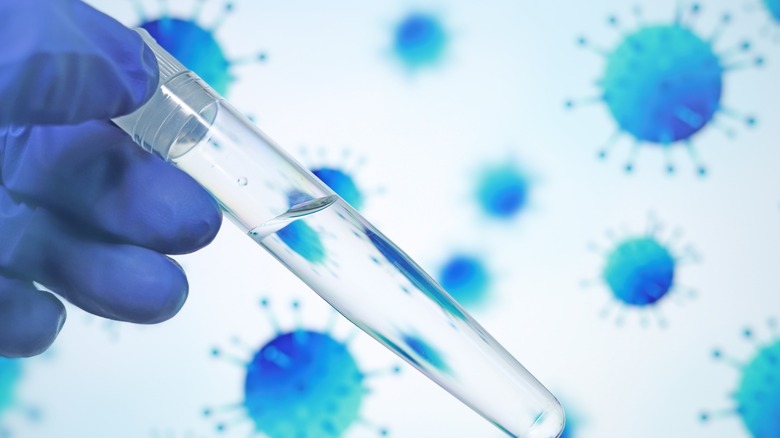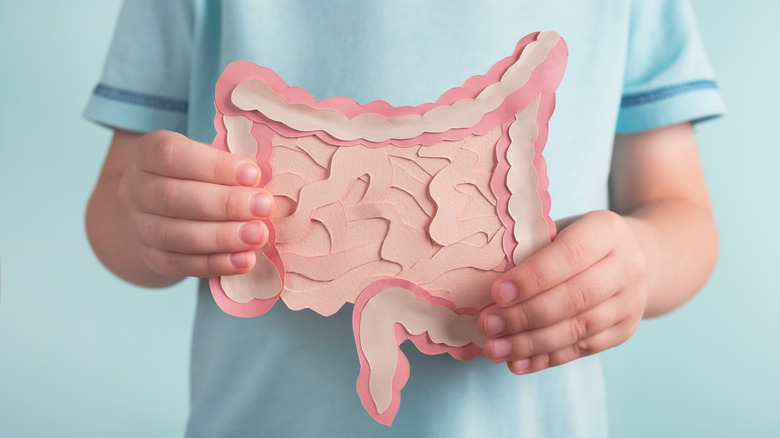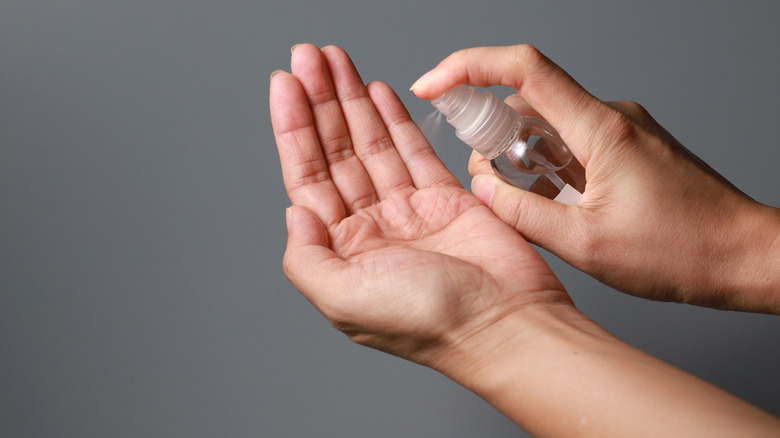Can E. Coli Be Contagious?
The average person encounters thousands of bacteria daily — some of which can make you seriously sick. Escherichia coli, also known as E. coli, is a large group of bacteria found in the intestines of living organisms, per (via Centers for Disease Control and Prevention). Most E. coli are pretty harmless and may even help improve digestive tract health. However, some strains can make you sick, resulting in vomiting and diarrhea (via WebMD).
E. coli infection accounts for around 73,000 illnesses in the United States each year, as revealed in this 2005 study published in Emerging Infectious Diseases. The disease-causing strains of E. coli make a toxin called Shiga, which damages the lining of your intestines, per WebMD.
According to Cleveland Clinic, six E. coli strains can cause diarrhea or bloody stools. Shiga toxin-producing E. coli is known for food contamination, while enterotoxigenic E. coli is associated with travelers' diarrhea. The other four include diffusely adherent E. coli, enteroaggregative E. coli, enteropathogenic E. coli, and enteroinvasive E. coli.
Since bacterial infections come with the risk of serious sickness, it begs the question: "Can E. coli be contagious?" This article delves into E. coli infections, detailing the ways they spread and how to protect yourself.
Is E. Coli contagious?
E. coli is mostly harmless, but a few strains of the bacteria can lead to infections or illnesses. You're most likely to get E. coli from consuming contaminated foods. However, not all strains are infectious — only those that cause gastrointestinal symptoms (via Healthline). According to the Ontario Ministry of Health, the infection can spread via hand-to-mouth contact. In other words, you may become vulnerable to harmful E. coli if you shake the hands of an infected person and don't wash your hands after. Besides poor hand washing, improper food handling is another way harmful E. coli spreads.
E. coli also can spread through the oral-fecal route, as the Cleveland Clinic terms it. Therefore, daycare facilitators or geriatric nurses who deal with diapers and incontinence garments from people in their care are most likely to spread the virus. The same applies to farmers who handle animals with soiled fur.
Some people are more susceptible to an E. coli infection than others. They include pregnant women, adults aged 65 and older, children younger than 5 years, people with weakened immune systems, and people who travel to certain countries (via CDC). If you're a frequent traveler, you may want to check infection rates in the countries you visit to reduce your risk of E. coli infection.
How to prevent it from spreading
One of the most important things you can do to prevent E. coli contamination is to wash your hands regularly. Also, since E. coli bacterial infections often stem from eating contaminated foods, the CDC recommends following the following four steps to food safety: clean, separate, cook, and chill. First, clean surfaces and wash your hands before you start cooking. Separate raw meats and poultry foods (because they can spread germs to ready-to-eat food). Also, cook food at the right temperature and freeze it effectively, since bacteria can multiply at room temperature. If you work with animals, keeping your food and drinks away from animal areas and supervising children when they're around animals is a good idea.
Generally speaking, practicing safe food handling can help prevent E. coli infections. Given this, Healthline advises against handling food if you have diarrhea. The source also advises against defrosting meat on the counter rather than in the fridge or microwave to prevent exposure to bacteria. Additionally, if you drink milk, it might be a good idea to stick to pasteurized milk products, since unpasteurized milk can increase your chances of infection.



